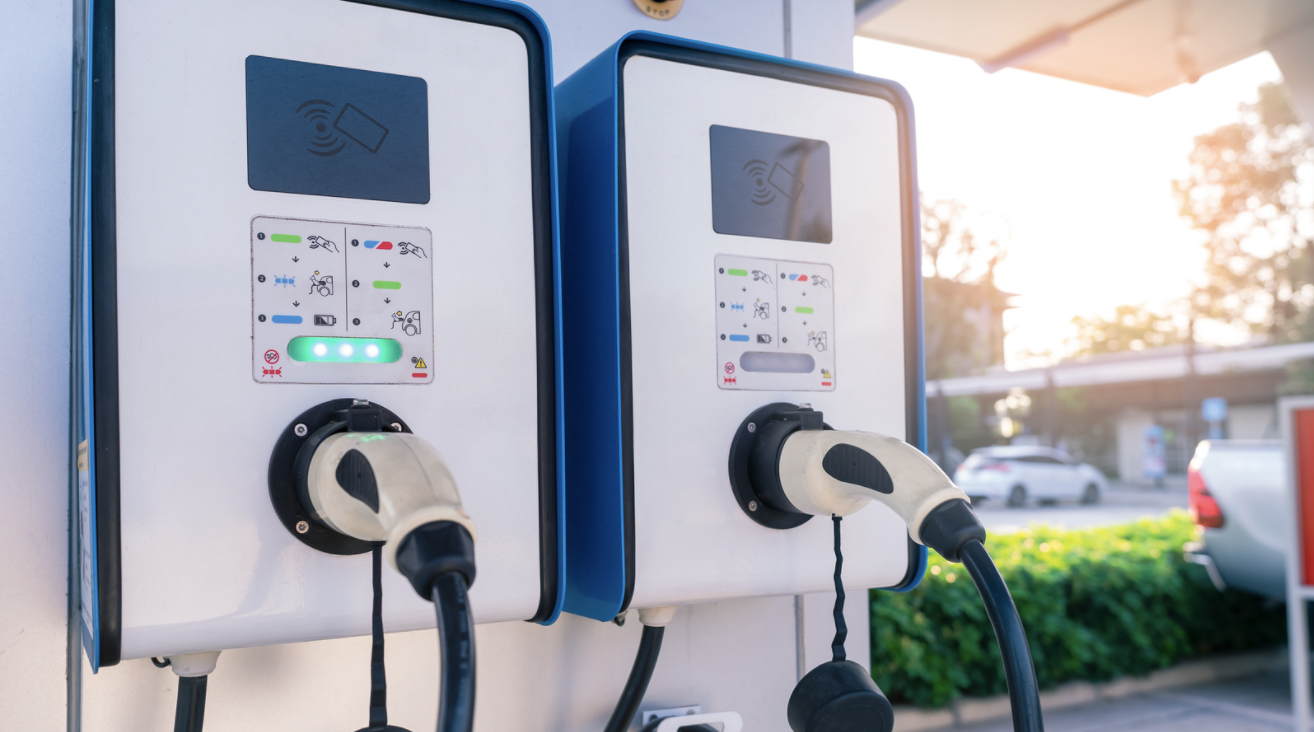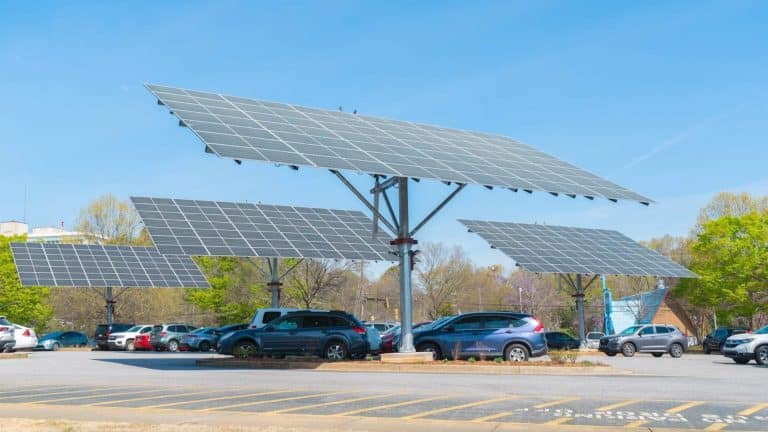For the first six months of 2020, Duke Energy (Duke), North Carolina Public Staff, and dozens of stakeholders, including Southern Alliance for Clean Energy (SACE), hammered out electric transportation programs that will efficiently, effectively, and equitably expand the state’s electric vehicle (EV) market. Today, the North Carolina Utility Commission (NCUC) approved the first one, the Make Ready Credit Program (MRC). SACE commends the NCUC for ruling in favor of this program and for adding conditions that will help ensure program accessibility, transparency, and accountability.
What is Make-Ready?
Installing EV charging infrastructure can be costly, especially fast chargers used to facilitate EV drivers’ long-distance travel and power large vehicles, like transit buses and freight trucks.
Make-Ready programs reduce the cost of EV charging infrastructure for charging station owners and developers because the responsibility of bringing power to the EV charging stations is taken off station owners and put on the utility that can plug into the grid they manage. In simple terms, the utility is taking responsibility for bringing power to the EV charger.
The utility, in turn, recovers those costs over time by selling electricity to the EV’s that will charge at the stations. Thus, make-ready programs help address financial barriers associated with deploying EV charging infrastructure to support the rapidly expanding electric car, truck, and bus markets.
Why it Matters
Duke is now permitted to do two things:
- Perform the electrical work that is needed to bring power from the electricity grid to an EV charging station, including transformer upgrades, conduit, and wires;
- Provide residential (including multi-family) and non-residential customers with an installation credit to cover their costs paid to electrical contractors to install EV charging stations.
The high cost of upgrades that are required to install EV charging equipment slows down charger deployment, which is a barrier to greater EV adoption. This order’s approval mitigates this problem helping get more charging stations installed to support North Carolina’s goal of 1.25 million EVs by 2030 and commitment to accelerated medium and heavy-duty truck and bus deployment.
In addition to helping accelerate EV charger deployment, the MRC program provides Duke access to a growing new revenue stream. EVs plug into charging stations and consume electricity to charge batteries. Duke is the wielder of electricity and will therefore collect money to provide that electricity.
Depending on a number of factors, like the expected volume of traffic at a charging station, Duke can calculate the anticipated revenue it will receive from the charging station and then apply that future revenue as a credit against the customer’s out-of-pocket cost to install the charger. This allows residential and commercial station owners and developers to avoid costs that the utility is well suited to incur while enabling the growth of the EV market that generates new revenue for the utility, allowing it to recover the MRC Program costs over time.
The timing of this NCUC approval is critical. North Carolina is rolling out the $63 million Phase 2 Volkswagen Settlement program to support EV charging station deployment and vehicle electrification. And the first traunch of North Carolina’s $109 million federal bipartisan Infrastructure Investment and Jobs Act funding is coming later this year to support fast charging expansion along the state’s highway corridors. The MRC Program will allow these public dollars to stretch further by lowering charging station installation costs.
Advocate Amendments Made, Room for Improvement
The MRC Program received broad support from stakeholders and regulators, but there were aspects of the proposed program that groups took issue with. The NCUC’s order added conditions to Duke’s proposed program to address stakeholders’ and regulators’ concerns. For example, SACE, and our intervening partners, the North Carolina Justice Center and Southern Environmental Law Center, advocated for improvements that included:
- Rate designs to maximize the grid impacts of MRC-supported installations,
- Ensuring the installation credit is paid to the customer within one billing cycle of the installation,
- Requiring Duke to make special efforts in its marketing and outreach to make the MRC programs and contractor eligibility accessible to lower-income communities, rural residents, and communities of color, and
- Bringing the MRC Program under an existing third-party evaluation, measurement, and verification (EM&V) program to ensure learnings are captured and shared with stakeholders.
The NCUC ordered Duke to provide customers’ their credit within one billing cycle as suggested, getting the money back into their pockets quickly. It also directed the company to work with stakeholders to determine and develop marketing best practices for reaching all customers, including low- and moderate-income customers and those in rural communities. We appreciated that the NCUC took these recommendations and those made by other interveners under consideration.
However, the NCUC left other program improvements at the discretion of Duke. SACE will work alongside stakeholders, Public Staff, and Duke to make sure the MRC Program is implemented with integrity and achieves the intent of growing the state’s electric car, truck, and bus markets.
Duke has a vested interest in enabling more EV charging stations to support greater EV adoption and increased revenue for the company. SACE and fellow stakeholders concerned with the growing threats from climate change have a vested interest in eliminating carbon emissions from transportation while ensuring that the shift to electric transportation results in equitable access for all consumers. The MRC Program has the potential to help achieve these goals.
Electrify the South is a Southern Alliance for Clean Energy program that leverages research, advocacy, and outreach to promote renewable energy and accelerate the equitable transition to electric transportation throughout the Southeast. Visit ElectrifytheSouth.org to learn more and connect with us.



